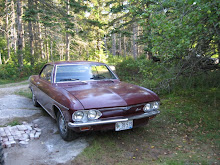There was a great article in the New York Times Sunday edition recently. A fellow from New Jersey really liked his late '70's Mercedes 300 D diesel. It ran wonderfully and it seemed to be built like a tank. So he kept his eyes open and wound up buying two more: one for his wife and one to keep at a vacation home in Vermont. They're similar cars from the late '70's-early 80's.
The owners says he's 50 years old which means he'll probably never have to buy another car in his lifetime. He sounds very pleased with his approach.
His total costs of purchase are less than a Nissan Versa. By virtue of age and original price, his registration fees/excise taxes and insurance are substantially less than they would be with new cars.
They have high mileage but as Mercedes diesels, they'll run for a long time. Parts support remains great so the cars are never tied up for parts. This is in sharp contrast to a friend's VW Jetta, which has sat at our local mechanics shop for 10 days waiting for the VW dealer on the mainland to actually get him a heater motor. You'd think that in New England, which has real winters, dealers would have adequate access to something as critical as a heater blower motor - not so.
With classic cars you give up many active aids to crash safety, so guess what - you have to drive with greater care. Classic cars have plenty of passive safety features built into their designs, but of course, they were designed during a time that it was assumed the whole idea of driving was avoiding accidents.
If you don't want to, or can't, work on them yourself, you'll help the national economy by moving parts [which then must be manufactured somewhere], keeping local mechanics employed, and actually buying something you can afford.
Think about it - now's the time to change and enjoy that classic car you've always wanted. If you have to drive, why not make it fun?
Tuesday, January 6, 2009
Subscribe to:
Comments (Atom)







